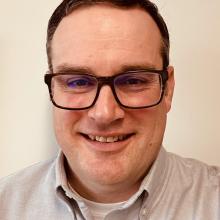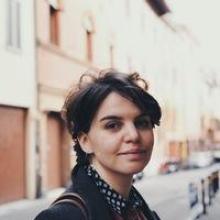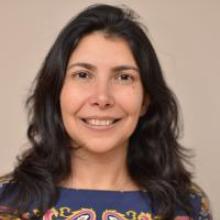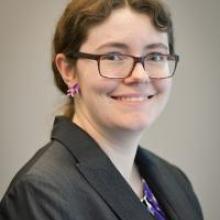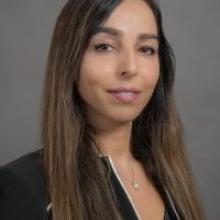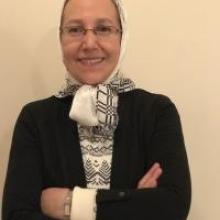This year saw many new additions to the MELC Department! Below is information and a short interview with our fabulous new members of the MELC family.
Paul Siscel, Administrator
Paul joins MELC after many years providing administrative support at the UW Medical Center and facility management in UW Health Sciences. A proud Husky, Paul holds a Bachelor’s degree in History from the University of Washington, as well as an MBA from City University. Outside of work, Paul enjoys hiking, Husky football, and debating aspects of popular culture.
What are some ways your field could grow? Use of technology to manage and share documents.
What was your favorite class when you were a student? My senior thesis, because it enabled me to perform primary research.
If you could teach any class you wanted, what would it be? Provided I could magically obtain the qualifications, I would teach a class on the history and politics of institutionalized racism in the United States.
Canan Bolel, Assistant Professor of Jewish Cultures, Literature and Languages of the Eastern Mediterranean
Canan joined MELC as an Assistant Professor after completing her Ph.D. in Near and Middle Eastern Studies at the University of Washington. This academic year, she teaches “Modern Sephardic Cultures,” “Elementary Ladino,” “Guided Readings in Ladino,” and “Disease in the Eastern Mediterranean and the Middle East.” She enjoys experimenting with succulents and learning new scripts and languages. Currently, she is trying to teach herself Greek and Norwegian.
If you could teach any class you wanted, what would it be? Cats of the Middle East!
If you could vacation anywhere in the Middle East, where would you go? Kars, a city in northeast Turkey, has been on my list for years. I am particularly interested in the site of Ani, a medieval ghost city.
What was your favorite class when you were a student? I remember enjoying the “Politics and Literature” class and reading Orhan Pamuk along with Mikhail Bakhtin and also “Literature and Psychoanalysis.” However, my favorite was Vicente Rafael's course, "Perspectives on History," which I took during my first year of Ph.D. at the UW. Reading Walter Benjamin's work for this class profoundly impacted me in many ways.
Reham Elkhayat, Lecturer of Arabic Language
Reham has joined the Arabic and Islamic Studies Program as a part-time Assistant Lecturer after working as an adjunct for Cairo University, City University (Madrid Campus), and several community colleges, teaching Arabic, Arab Culture, Spanish, English and Comparative Grammar. She earned her BA in 1994 in Languages from Al-Alsun, Ain Shams University in her hometown of Cairo, Egypt, with an emphasis on Arabic, English and Spanish; then finished her MA in 2009. Reham currently teaches first year Arabic classes at UW, introducing students to Arabic phonemes, grammar, heritage, and regional dialects. When not teaching, she enjoys watching movies, keeping up with world events, and playing word games.
If you could teach any class, what would it be? Teaching first year Arabic classes brings me joy because I like sharing my language and culture with students. I love to see them advance and grow in the way they use the language. I love the diversity in the Middle East, so I would be interested in developing a course that deals with the different ethnic groups, tribes, sects, and cultures that make the Arab-speaking world so rich. I am also interested in exploring the art and history of Al-Andalus, and how Arabic and Arabs influenced other languages and cultures.
What are some ways your field could grow? I would love to see Arabic being taught in public schools in WA. There is a growing local interest and I believe it would add richness and value to our community.
Kathryn Medill, Assistant Teaching Professor in Hebrew Bible and Ancient Near Eastern Studies
Kathryn has joined the Hebrew Bible and Ancient Near Eastern Studies program as an Assistant Teaching Professor after several years as an adjunct for John Hopkins, Towson, and Eastern Universities. She completed her doctorate in Hebrew Bible and Northwest Semitics at Johns Hopkins in 2020. She is looking forward to teaching a wide variety of classes at UW, from Biblical Hebrew to courses on biblical and ancient Near Eastern literature. When not contemplating Hebrew grammar, she enjoys playing board games and writing historical fantasy.
If you could teach any class, what would it be? I’m excited about the new courses that I’m already scheduled to teach, but I would also love to run a deep dive into the Old Babylonian period or into the history of ancient Syria.
What are some ways your field could grow? Classical K-12 schools already incorporate Greco-Roman material into their curricula—now if we could only convince them that other ancient literatures have just as much value!
Elham Monfaredi, Lecturer of Persian Language
Elham is a recent addition to the Persian and Iranian Studies Program, joining us in January 2023. She received her doctorate in Second Language Studies at University of Hawaii in 2019, and has since worked in a variety of roles, including as a second language acquisition expert at the National Foreign Language Center. She has a strong track record of teaching Persian at different proficiency levels at schools including San Diego State University and University of Maryland. In her free time, Elham enjoys cooking, hiking, and dancing.
If you could vacation anywhere in the Middle East, where would you go? I would definitely choose Egypt. The country is rich in history and culture, with many ancient sites and landmarks to explore.
What are some ways your field could grow? As a conversation analyst, I work with data of natural interactions. My field could grow by using more research-based materials which can provide a wealth of information about how language is used in real-life interactions.
Amina Moujtahid, Lecturer of Arabic Language
Amina joined the Arabic and Islamic Studies program at MELC this year as a part-time lecturer in Arabic.
Please welcome our new members when you encounter them around campus!
Kathryn Medill
